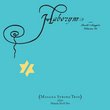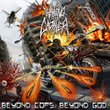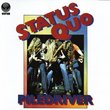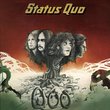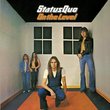| All Artists: Status Quo Title: Dog of Two Head Members Wishing: 2 Total Copies: 0 Label: Castle Classics Release Date: 8/3/1998 Album Type: Import Genres: Rock, Metal Style: Number of Discs: 1 SwapaCD Credits: 1 |
Search - Status Quo :: Dog of Two Head
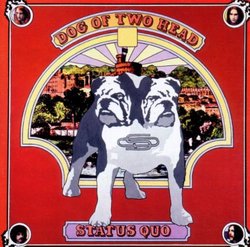 | Status Quo Dog of Two Head Genres: Rock, Metal
Digitally remastered reissue of their fourth album overall &final one for the Pye label. Originally released in 1971, itnow features five bonus tracks added: 'Time To Fly' andpreviously unreleased versions of 'Tune To ... more » |
Larger Image |
CD DetailsSynopsis
Album Description Digitally remastered reissue of their fourth album overall &final one for the Pye label. Originally released in 1971, itnow features five bonus tracks added: 'Time To Fly' andpreviously unreleased versions of 'Tune To The Music', 'GoodThinking (Batman)', Similar CDs
|
CD ReviewsMott of Two Heads Kim Fletcher | Pattaya, Chonburi Thailand | 12/11/2003 (5 out of 5 stars) "There must of been somebody at the Pye Record Label in 1973 kicking himself in the seat of the pants; Status Quo, let go by the Pye roster less than two years earlier, was the #1 album, single, and touring band in the U.K. by that time. The magnificent "Dog of Two Heads" album was released as Status Quo's swansong album for Pye on Christmas 1971 with little fanfare and no publicity boost. With this in mind it is little wonder that the album sunk without trace. Status Quo then moved to the newly formed Vertigo label and before Christmas 1973 had had three top ten albums ('Piledriver' - #5 in February 1973; 'Hello' - #1 in September of the same year; 'Quo' - #2 in May 1974) and five Top Ten hits in the same period. The worst part for Pye was that perhaps "Dog of Two Heads" released on their label was the pick of the bunch. The original album had six slabs of Quo boogie rock split up by one acoustic song, the autobiographical "Nanana", which was about the difficulties of songwriting and getting them accepted by your peers. At first you only get thirty seconds, half the song you get later, but the entire song is sung to finally complete the album. A very unique and fun way to break up the album. Apart from this lays down some of the dirtiest, driving, boogie ever laid in a recording studio. No, these boys may not have been the most talented on the block, but what they lacked in some areas they certainly made up in others. Sheer enthusiasm for a kick off.The album comes roaring out of your speakers with opener "Umleitung" (a strange title, no comment as I have never had a clue what it means, any suggestions?) a classic example of Status Quo boogie, very limited on the vocals over its 80-minute length. However, once Parfitt and Rossi started to work their magic on guitar, their new found confidence in themselves seeps out of every note. Francis Rossi lets rip one of his fine guitar solos that would have many a teenager grabbing for a tennis racquet and blasting out the licks in his mind whilst acting out his adolescent fantasies in front of the mirror.Next up (after the first bit of "Nanana") is another Quo classic "Something's going on in my Head". Not surprising if anything the boogie is even heavier as this song was one of bass player Alan Lancaster's first contribution to the Quo songbook. Then we get "Mean Girl", which was not at the time released as a single, but a year later when Quo broke into the singles chart with their first single for Vertigo "Paper Plane" (#5) - it still made it to #20. "Mean Girl" was often used by the band as an encore number and is a simple fast rocker, three cords, with a terrific guitar solo and a chorus that leaves you gasping for air. After a touch more "Nanana" there comes - for Quo - a quaint little ditty called "Gerundula", almost a fast paced jig with lots of handclapping and tambourines behind Rossi's guitar. A good way to lead into the album's two high points. First we get the Magnificent "Railroad", arguably one of the finest songs ever to come out of the Quo catalogue. It was written by Francis Rossi and long time band roadie Bob Young, who guests with a totally over the top Harmonica solo (sort of like Quigley, but can actually play) in the song's mid section. This fits in well with the Pathos that Alan Lancaster manages to put into the vocals about losing in love, before Francis Rossi himself comes in to lay his guitar licks all over the climax. In progressive/rock this would be called a 7-minute epic; in the land of Status Quo it's the one where you get down the front and bang your head for 7 minutes. The last slab of Quo boogie we get is the second Lancaster song "Someone's Learning". Live it would often bring the set to an orgasmic Rock 'n' Roll climax, which it does here on the album with all the guitars and drums in the band driving the rhythms into your head with sledgehammer force. Finally the band drifts away with the closing version of "Nanana", giving you a chance to tuck your tennis racquet away before your Mum catches you.When the album was digitally remastered and released in 2003, the good people of Pye were good enough to add on five extra bonus tracks, however, no of them are really a touch on the original songs. Nice try there, boys, but I bet you wish you had some of the royalties from the band's pomp in the mid-seventies. Status Quo are still going today, playing concerts all over Britain and releasing a new album each year to their still loyal fans. Although they have never meant a light in America, the Quo can still pack them in - in Butlins, Skegness, where the teenagers in the mirror are now Mums and Dads themselves, still tucking their thumbs into their belts and boogieing along. Mott the Dog." Die Hard fans will love this ian gregson | Vancouver, British Columbia Canada | 01/27/2003 (4 out of 5 stars) "Whilst DOTH may not represent Quo as they would later evolve in to, just a year later. DOTH does give a great indication of where they were about to go. Gone is the pretence of psychedelia, the long hair is there, the music would soon catch up.It is an absolute travesty that Quo never made it in North America, Capitol really screwed up. However, in 1971 Quo were starting to make a noise and this CD is a great place to show were they came from."
|

 Track Listings (14) - Disc #1
Track Listings (14) - Disc #1

